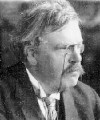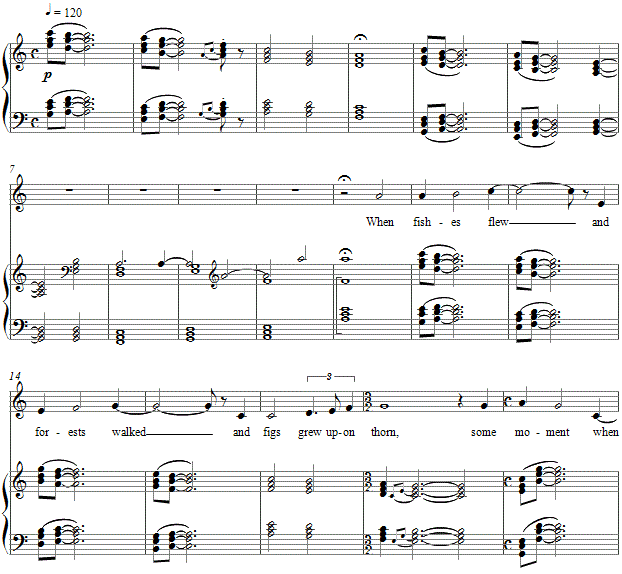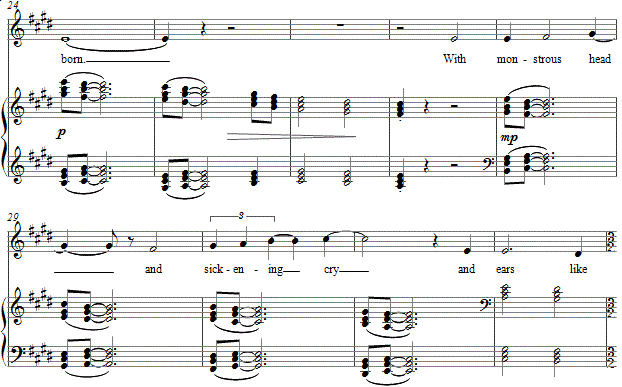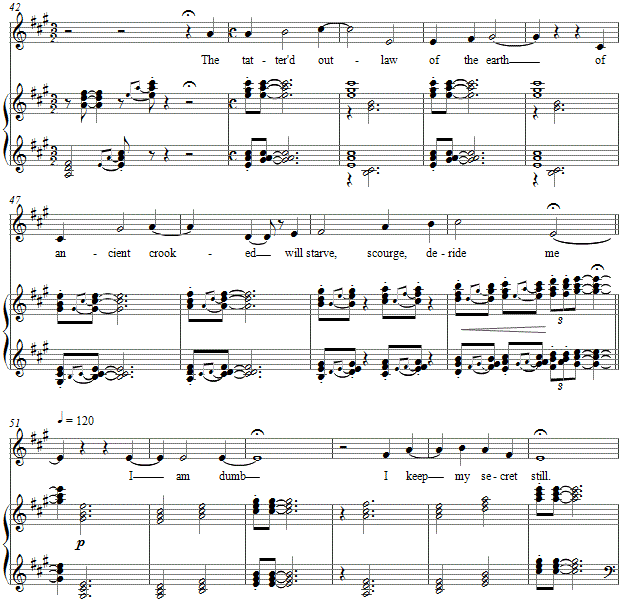Music and Texts of GARY BACHLUND
Vocal Music | Piano | Organ | Chamber Music | Orchestral | Articles and Commentary | Poems and Stories | Miscellany | FAQs
The Donkey - (2010)
G. K. Chesterton
for medium voice and piano
When fishes flew and forests walked
And figs grew upon thorn,
Some moment when the moon was blood
Then surely I was born.
With monstrous head and sickening cry
And ears like errant wings,
The devil's walking parody
On all four-footed things.
The tatter'd outlaw of the earth
Of ancient crooked will
Starve, scourge, deride me, I am dumb
I keep my secret still.
Fools! For I also had my hour;
One far fierce hour and sweet:
There was a shout about my ears,
And palms before my feet.[ 4 pages, circa 2' 50" ]
G. K. Chesterton
Of the many references to the donkey in literature, poetry and music, most are portraits in which the donkey is the butt of the joke. Examples from German culture which I have set to music are Claudius' caricature Der Esel, and Heine's political commentary, Die Wahl-Esel. In Chesterton's poem found in The Wild Knight and Other Poems, published 1900, this is turned into a comment referring to the Christian narrative of Palm Sunday.
I choose to find in it also another layer of meaning, in which even the usual butt of jokes has inherent and even redemptive value, if only for that character's parenthetic participation in another story. That the character of the donkey keeps his "secret" and therefore remains silent in the face of derision is more than admirable, keeping counsel with the true and certain knowledge of self-worth in a world which would so willingly dilute it. Chesterton offers us a glimpse of that all-too-real world which would seek to "starve, scourge, deride" in his dark The Horrible History of Jones.
This is text, in part, the answer to a conundrum of life as Chesterton reminds us that our worth is of our own creation, of the fortuitous nexus of significant, positive life experiences and our wisdom in holding in our thoughts each "one far fierce hour and sweet."
,
The stanzas of the poem are set, beginning in C with long accompanying arches of falling diatonic harmonies often in a soft "snap" rhythm.
The second stanza is set, moving by common tone modulation to E, and then beyond into A before a return to C. Characterizing in musical gesture such images as "monstrous head" and "sickening cry" are avoided, in favor of an underlying beauty and wisdom which Chesterton teaches through the conclusion of this text.
An acceleration of tempo occurs in portraying the "others" in life who disparage and deride, as the setting briefly moves to A major, before a bright tonic sums up the poet's vision of redemption.
The score is available as a free PDF download, though any major commercial performance or recording of the work is prohibited without prior arrangement with the composer. Click on the graphic below for this piano-vocal score.



